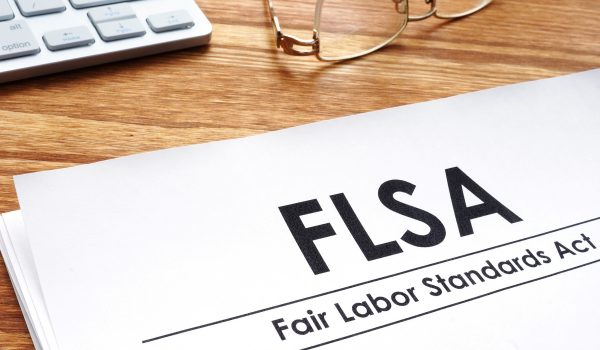The Department of Labor (DOL) announced its highly anticipated final rule to amend the regulations governing regular rate requirements under the Fair Labor Standards Act (FLSA) on Dec. 12, 2019. The new rule will go into effect on Jan. 15, 2020. The DOL proposed the rule in April, and you can click here to read more about what they presented in our advisory.
Generally, the FLSA requires employers to pay non-exempt employees overtime pay of at least one and one-half times the regular rate for hours worked in excess of 40 hours per workweek. Understanding what is included in the regular rate is critical in determining how much overtime compensation a non-exempt employee is entitled to.
The DOL has not significantly updated the regular rate regulations in over 50 years. The previous regulatory framework left employers uncertain of what types of payment, benefit programs, or other perks of employment should be included in calculating an employee’s regular rate.
The DOL’s final rule clarifies which perks and benefits must be included in the regular rate of pay, as well as which perks and benefits an employer may exclude from the regular rate of pay. It is expected that many employers that have refrained from offering these competitive benefits to avoid the risk of FLSA violations will now be encouraged to provide additional benefits and perks to employees without fear of costly litigation.
The final rule confirms that employers should exclude the following items when calculating an employee’s regular rate:
- the cost of providing certain parking benefits, wellness programs, onsite specialist treatment, gym access and fitness classes, employee discounts on retail goods and services, certain tuition benefits, and adoption assistance;
- payments for unused paid leave, including paid sick leave or paid time off;
- payments of certain penalties required under state and local scheduling laws;
- reimbursed expenses, even if not incurred “solely” for the employer’s benefit;
- reimbursed travel expenses that do not exceed the maximum travel reimbursement under the Federal Travel Regulation System and that satisfy other regulatory requirements;
- certain sign-on bonuses and certain longevity bonuses;
- the cost of office coffee and snacks to employees as gifts;
- discretionary bonuses;
- contributions to benefit plans for an accident, unemployment, legal services, or other events that could cause future financial hardship or expense.
The final rule also makes two substantive changes to the existing regulations. First, the DOL eliminates the requirement that “call-back” pay (e.g., pay to an employee who has previously left the employer’s premises and is asked to return to work before the next scheduled shift) and other similar payments must be “infrequent and sporadic” to be excludable from an employee’s regular rate.
Second, the final rule updates the FLSA’s basic rate regulations. Under the current regulations, employers using an authorized basic rate may exclude from overtime computation any additional payment that would not increase an employee’s total overtime compensation by more than fifty cents a week on average. The final rule amends the regulations by replacing the specified dollar amount of fifty cents, to a limit of 40 percent of the higher of the applicable local, state, or federal minimum wage.
The DOL’s final rule only affects federal wage and hour law. Each state may have its own wage and hour laws and standards employers may need to comply with.

